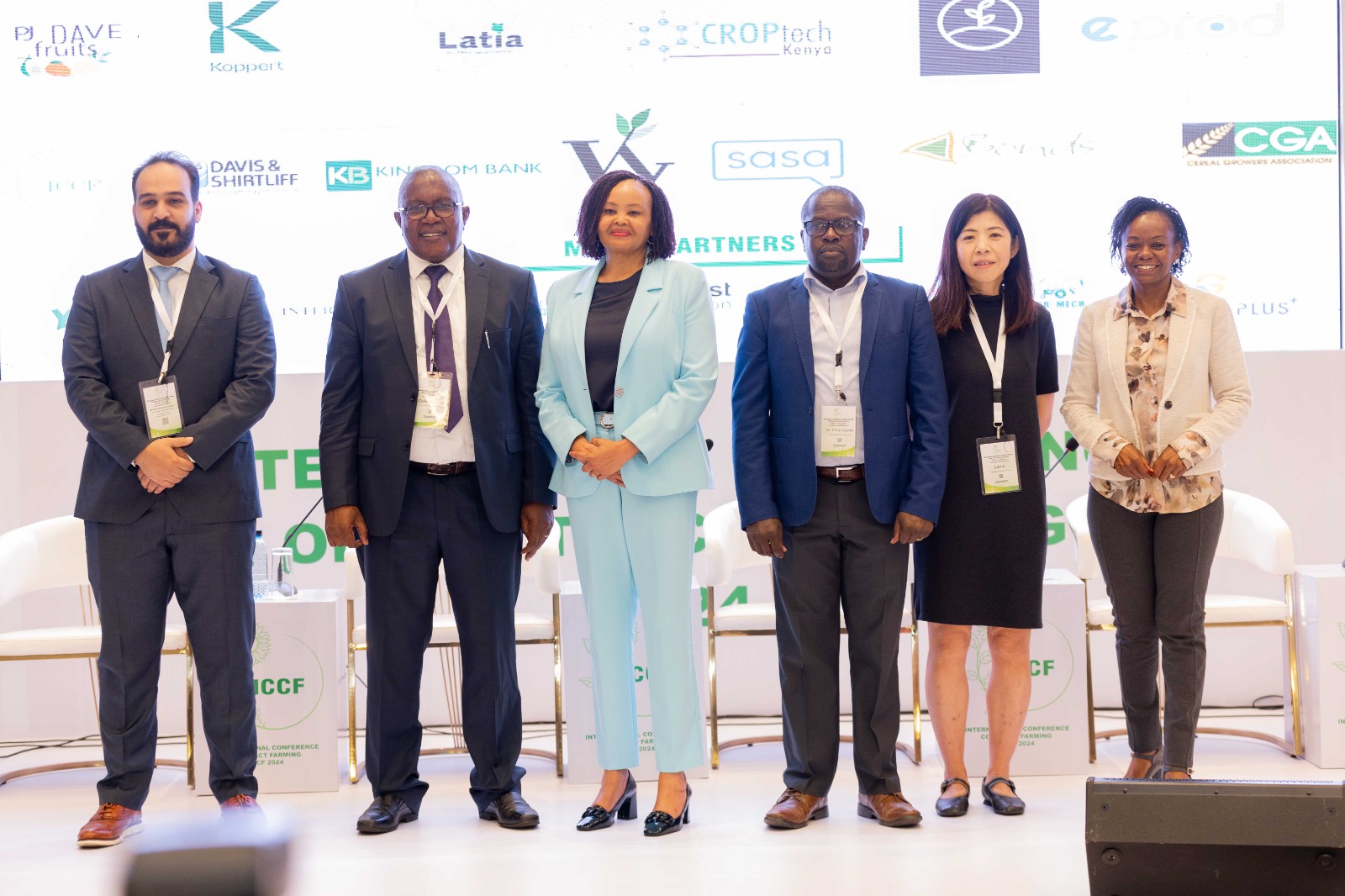

The International Conference on Contract Farming (ICCF 2024) kicked off at the Edge Convention Centre on Tuesday in Nairobi.
The conference brought together over 500 participants, including farmers, policymakers, agribusiness leaders, and experts from across Africa and beyond.
The two-day conference is the first of its kind dedicated solely to exploring and advancing contract farming in Africa under the theme, “Revitalizing African Agriculture – Time for Bold Action.”
In a keynote speech delivered on behalf of the Cabinet Secretary for Agriculture and Livestock Development, Dr. Andrew Karanja emphasized the critical role of contract farming in supporting Africa’s economic and social development.
“Contract farming enables farmers to secure reliable markets for their produce while ensuring buyers have access to quality and quantity. It represents a powerful tool for transforming Africa’s agricultural sector.
“When implemented with fairness, transparency, and sustainability, it can unlock the continent’s vast agricultural potential, improve rural livelihoods, and promote food security,” he said.
The Cabinet Secretary also highlighted Kenya’s efforts to create policies and frameworks that support contract farming, referencing the Agricultural Policy of 2021 and the Agricultural Sector Transformation and Growth Strategy (ASTGS) 2019-2029.
“In Kenya, we have formulated policies to support contract farming, focusing on market access, fair contract terms, and ensuring that our farmers receive adequate legal protection,” he added, acknowledging the need for robust regulatory support to prevent exploitation in contract agreements.
The Kenya National Chamber of Commerce and Industry (KNCCI), Kenya Private Sector Alliance (KEPSA), and the Kenya National Farmers Federation (KENNAF) are some of the key strategic partners for the conference.
In her remarks, Ms. Carole Kariuki, CEO of KEPSA, urged the government to support the farmers by providing agricultural extension services:
“Contract farming calls for consistency and quality production and as the private sector we have been working with companies in contract farming. Farmers need to be supported by the government so that they can match the required standards,” Noted Carole.
On her part, Peris Wanjiku, the conference director, called for collaboration and innovation.
Emphasizing the potential of contract farming to bridge gaps in agricultural productivity, market access, and income stability for farmers, she stated:”
“Contract farming, when thoughtfully structured, presents a powerful solution to the barriers faced by smallholder farmers. Farmers should know beforehand what to grow and where to sell. This is why contract farming is so important—it provides that framework of certainty and sustainability.”
Throughout the day, industry experts, including representatives from the Food and Agriculture Organization (FAO) and the International Finance Corporation (IFC), participated in sessions covering essential topics, such as Contract Farming Models in agriculture and livestock value chains, Seed technology, fertilizer use, and soil health, Policy support for contract farming, financing solutions for sustainable farming.
The conference also examined critical issues such as the formation of stronger farmers associations to ensure equitable negotiations, transparency, and enforceable contract terms.
With day one now complete, participants eagerly anticipate further discussions and action plans to address Africa’s agricultural challenges on day two of ICCF 2024.

 © The Star 2024. All rights reserved
© The Star 2024. All rights reserved